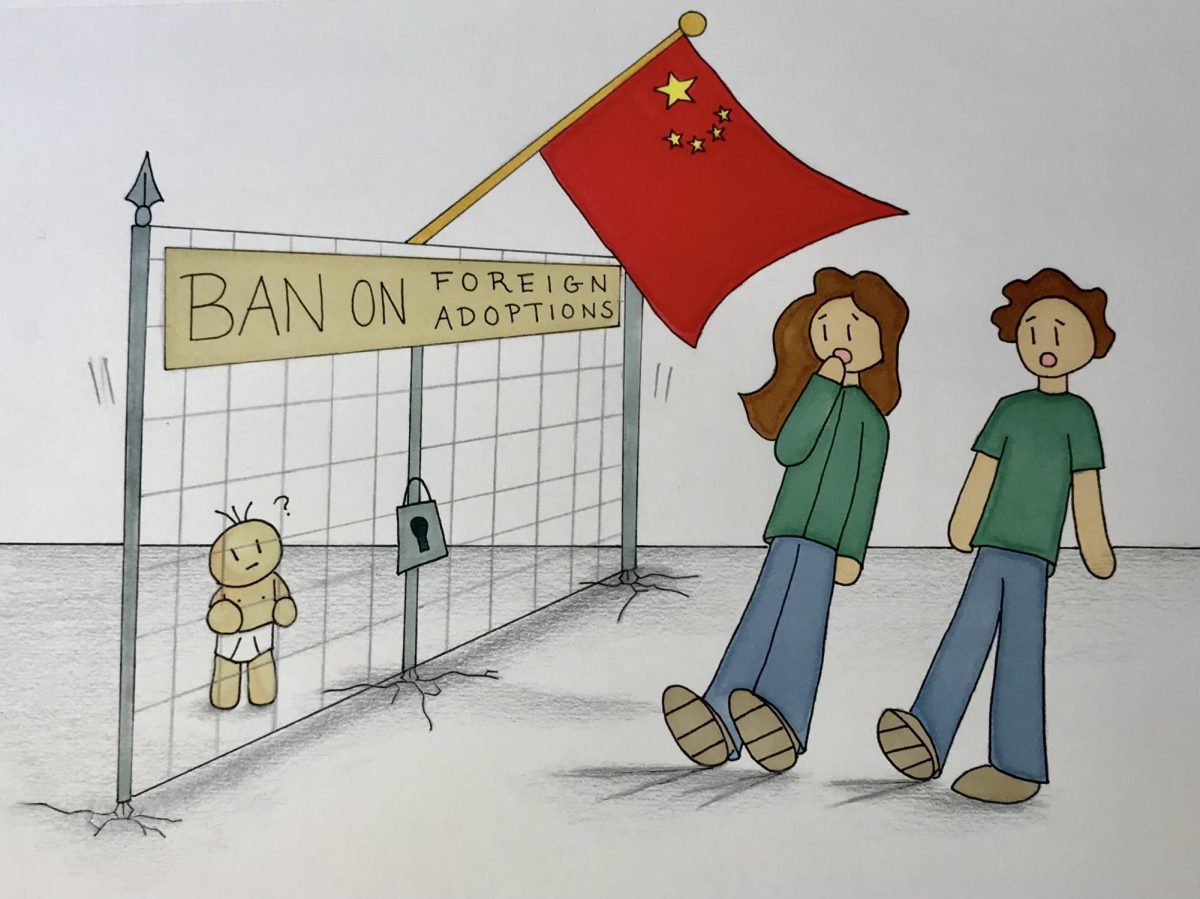On September 5th, 2024, China’s foreign ministry officially announced the end of the country’s foreign adoption program, drawing the curtain on an initiative that had spanned nearly thirty years. It comes as a result of current international trends and a desire to promote domestic adoption instead. But now, hundreds of families around the world are left devastated at the fact that they may never be able to bring their child home [1].
Beginning on September 25th, 1980, all families in China were forced to adhere to the one-child policy, in an effort to curb the country’s rapidly growing population. The policy was often unevenly enforced, with stricter attention placed on China’s urban areas compared to the rural countryside. Nevertheless, the country saw drastic results: by the mid-1990s, China’s fertility rate had dropped from six to less than two children per woman [5].
But such results came with an unfortunate and darker consequence. With millions of families restricted to one child, many chose to raise only a single boy. This meant that girls, seen as unfavorable, were abandoned at birth, along with babies born with disabilities.
With this influx of abandoned babies came a need to find a place for them to live and grow up. Hundreds of thousands of them wound up in orphanages, but with the sheer amount of children given up, the orphanages were running out of money [1].
With this desperation came the beginnings of China’s international adoption program. Starting in 1992, 160,000 Chinese orphans were adopted out of the country and sent overseas, with over half of them ending up in American families [3].
This initiative continued until the COVID-19 pandemic when all international adoption proceedings ground to a halt as China shut down its borders and restricted all travel in and out of the country. As the years passed, some families were able to adopt the children they had planned to prior to the pandemic. But for the rest, those dreams were shattered in early September, as an official end to China’s international adoption program was announced [4].
Naturally, the families were left devastated and furious, demanding any explanation or clarification on if or when they could ever pick up their child. China’s civil affairs ministry confirmed with the US State Department that it would allow travel for those with previously issued authorizations, but would not proceed with others unless in the case of relatives.
Those who were not given authorizations were left with nothing but a message from The State Department saying, “We understand there are hundreds of families still pending completion of their adoptions, and we sympathize with their situation.” [1]
China’s Ministry of Foreign Affairs spokesperson, Mao Ning, also gave a statement clarifying the situation: “This is in line with the spirit of relevant international conventions. We are grateful for the desire and love of the governments and adoptive families of relevant countries to adopt Chinese children.” [4]
For the families, it was a heartbreaking blow. But for the adopted children of these families, many of whom are now grown, the news was met with a different reaction.
Many extended their sympathies to the families affected but also cited their own experiences with being the only Asian person in their household, and the racism that they often endured growing up. They also shed light on the abuses that took place during the program, including kidnapping that took place at the hands of those who were looking to collect a fee [3].
There have been no further updates from either the United States nor China on the situation, and it does not seem like there will be any changes to China’s final decision. The country is currently grappling with the consequences of its one-child policy, including an aging population and young adults who are unwilling to help bolster it out of economic insecurity [4].
The end of China’s international adoption program marks the end of a complicated era, and serves as a grim reminder of the dangers of controlling policies. While China continues to resolve the consequences of its actions, many continue to feel its effects worldwide, for better or for worse.
[1]https://www.nytimes.com/2024/09/06/world/asia/china-foreign-adoptions-ban.html
[2]https://www.britannica.com/topic/one-child-policy
[3]https://www.npr.org/sections/goats-and-soda/2024/10/17/g-s1-28521
[4]https://www.cnn.com/2024/09/06/china/china-ends-foreign-adoptions-children-intl-hnk/index.html


Klaudia • Nov 19, 2024 at 4:17 pm
Great article, very informative!